
Johor Bahru: The Southern Jewel of Malaysia
Johor Bahru, or JB as it's fondly known, is a vibrant city located at the southern tip of Malaysia. It serves as a gateway to Singapore, offering a blend of cultures, cuisines, and experiences. With its bustling streets and historical landmarks, Johor Bahru is a city that captures the essence of modern Malaysia while preserving its rich heritage. One of the city's highlights is the Sultan Abu Bakar State Mosque, an architectural marvel that stands majestically on a hill overlooking the Straits of Johor. This mosque is not only a place of worship but also a symbol of the city's historical and cultural roots. Another must-visit is the Arulmigu Sri Rajakaliamman Glass Temple, a unique Hindu temple adorned with intricate glasswork that dazzles visitors. For those interested in history, the Johor Bahru Old Chinese Temple offers a glimpse into the city's multicultural past. The temple, which dates back to the 19th century, reflects the harmonious coexistence of different communities in Johor Bahru. Nearby, the Johor Bahru City Square and Komtar JBCC provide a modern shopping experience, offering everything from local crafts to international brands. Food lovers will find Johor Bahru a culinary paradise. From the famous street food at Jalan Wong Ah Fook to the diverse offerings at the Johor Bahru Night Market, there’s something for every palate. Don't miss out on trying local delicacies such as Laksa Johor and Otak-Otak, which are sure to leave you craving for more. Nature enthusiasts can escape the urban hustle at the lush, green Danga Bay and the serene Tanjung Piai National Park. These spots provide a perfect backdrop for relaxation and outdoor activities. Whether you're exploring the city’s vibrant nightlife or enjoying a peaceful day by the sea, Johor Bahru offers an enriching experience for every traveler.
Local tips in Johor Bahru
- Visit the Sultan Abu Bakar State Mosque early in the morning to avoid crowds and enjoy a peaceful atmosphere.
- Try the street food at Jalan Wong Ah Fook for an authentic taste of local cuisine.
- Remember to carry an umbrella or raincoat as the weather can be unpredictable, especially during the monsoon season.
- Take a day trip to Legoland Malaysia Resort, especially if traveling with children.
- Exchange currency at local money changers for better rates compared to airports.
- Use Grab or other ride-hailing apps for convenient and affordable transportation around the city.
- Visit during weekdays to avoid the weekend rush, especially at popular tourist spots.
Neighbourhoods in Johor Bahru
Johor Bahru: The Southern Jewel of Malaysia
Johor Bahru, or JB as it's fondly known, is a vibrant city located at the southern tip of Malaysia. It serves as a gateway to Singapore, offering a blend of cultures, cuisines, and experiences. With its bustling streets and historical landmarks, Johor Bahru is a city that captures the essence of modern Malaysia while preserving its rich heritage. One of the city's highlights is the Sultan Abu Bakar State Mosque, an architectural marvel that stands majestically on a hill overlooking the Straits of Johor. This mosque is not only a place of worship but also a symbol of the city's historical and cultural roots. Another must-visit is the Arulmigu Sri Rajakaliamman Glass Temple, a unique Hindu temple adorned with intricate glasswork that dazzles visitors. For those interested in history, the Johor Bahru Old Chinese Temple offers a glimpse into the city's multicultural past. The temple, which dates back to the 19th century, reflects the harmonious coexistence of different communities in Johor Bahru. Nearby, the Johor Bahru City Square and Komtar JBCC provide a modern shopping experience, offering everything from local crafts to international brands. Food lovers will find Johor Bahru a culinary paradise. From the famous street food at Jalan Wong Ah Fook to the diverse offerings at the Johor Bahru Night Market, there’s something for every palate. Don't miss out on trying local delicacies such as Laksa Johor and Otak-Otak, which are sure to leave you craving for more. Nature enthusiasts can escape the urban hustle at the lush, green Danga Bay and the serene Tanjung Piai National Park. These spots provide a perfect backdrop for relaxation and outdoor activities. Whether you're exploring the city’s vibrant nightlife or enjoying a peaceful day by the sea, Johor Bahru offers an enriching experience for every traveler.
When is the best time to go to Johor Bahru?
Iconic landmarks you can’t miss
Pasar Karat (Bazar JB)
Experience the vibrant atmosphere of Pasar Karat, Johor Bahru's iconic night market filled with delicious food, unique finds, and cultural richness.
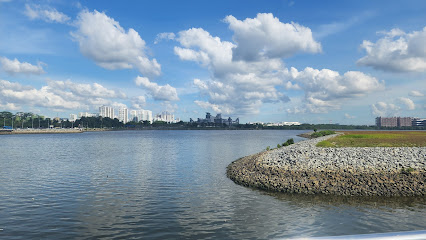
Johor Zoo
Explore Johor Zoo: A Family-Friendly Destination in Johor Bahru Featuring Diverse Wildlife and Conservation Efforts.
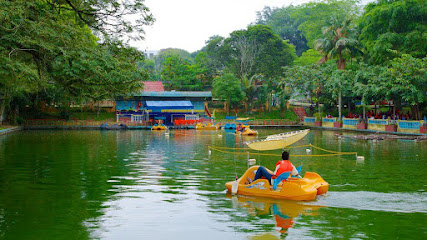
Taman Merdeka, Johor Bahru
Discover the tranquil beauty of Taman Merdeka, a lush city park in Johor Bahru perfect for relaxation, picnics, and scenic views.
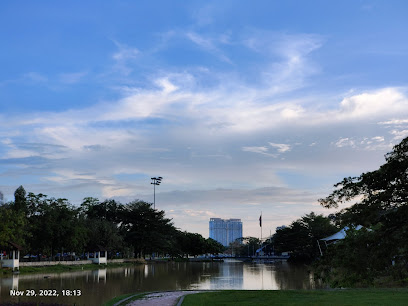
Johor Bahru City Council City Forest
Explore the lush trails and serene landscapes of Johor Bahru City Council City Forest, a perfect escape for nature lovers and families alike.
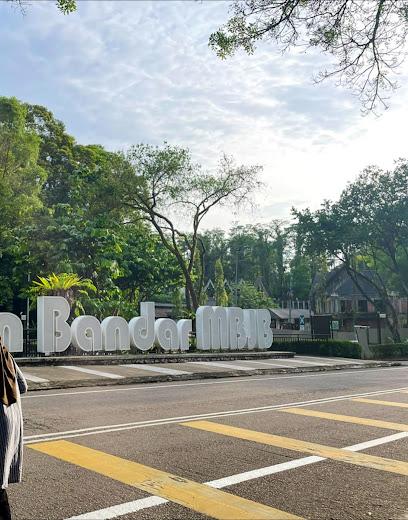
Sultan Abu Bakar Mosque
Explore the architectural grandeur and serene beauty of Sultan Abu Bakar Mosque, a must-visit cultural landmark in Johor Bahru.
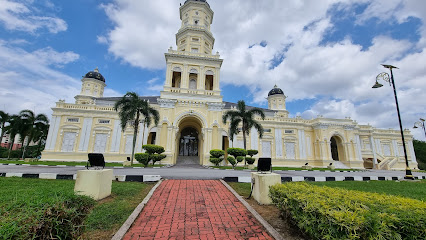
Johor Ancient Temple
Explore the cultural and spiritual heart of Johor Bahru at the stunning Johor Ancient Temple, a must-visit for all travelers seeking tranquility and heritage.
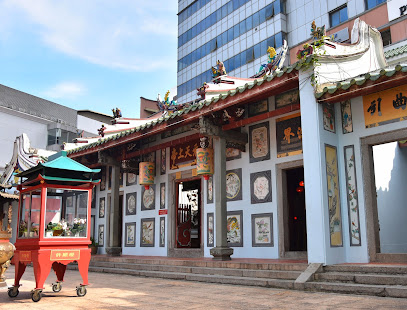
Arulmigu Sri Rajakaliamman Glass Temple
Discover the exquisite Arulmigu Sri Rajakaliamman Glass Temple in Johor Bahru – a mesmerizing blend of spirituality and stunning glass artistry.
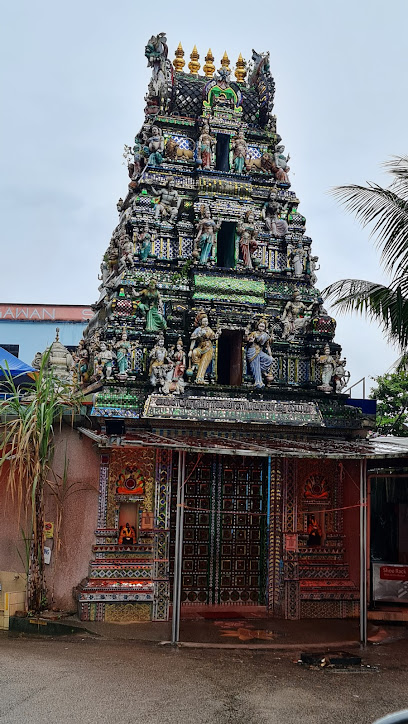
Angry Birds Activity Park, Komtar, Johore.
Experience endless fun at the Angry Birds Activity Park in Johor Bahru, where adventure and play unite for an unforgettable indoor escapade.
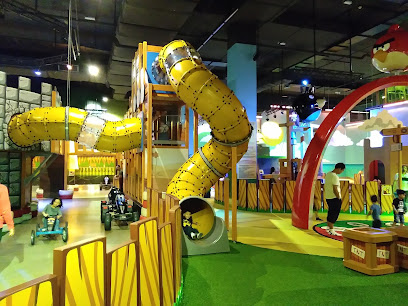
Church Of The Immaculate Conception
Explore the stunning Church of the Immaculate Conception in Johor Bahru, a must-visit destination for cultural and architectural enthusiasts.
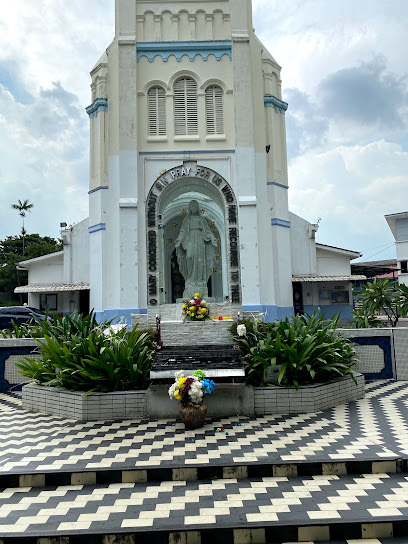
Johor Bahru Chinese Heritage Museum
Explore the Johor Bahru Chinese Heritage Museum, where history and culture come alive through captivating exhibits and engaging storytelling.
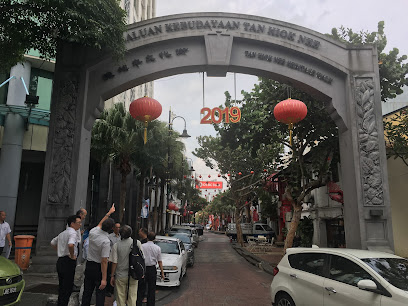
Dataran Mahkota
Explore Dataran Mahkota, a stunning waterfront square in Johor, perfect for leisurely strolls, cultural experiences, and unforgettable memories.
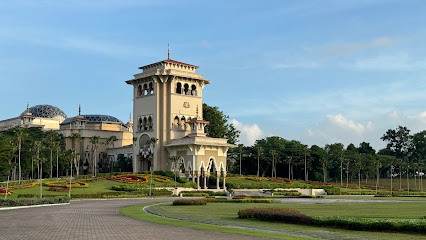
Bukit Serene Palace
Explore the stunning Bukit Serene Palace, a historical castle in Johor Bahru, showcasing royal architecture and beautiful gardens, perfect for a serene escape.
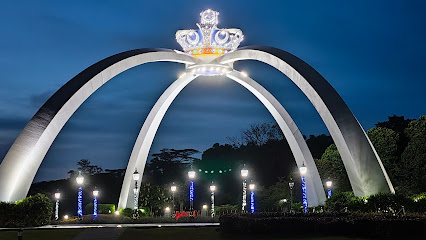
Arulmigu Rajamariamman Devasthanam அருள்மிகு ராஜமாரியம்மன் தேவஸ்தானம்
Experience the vibrant culture and spirituality at Arulmigu Rajamariamman Devasthanam Temple, a breathtaking Hindu temple in Johor Bahru.
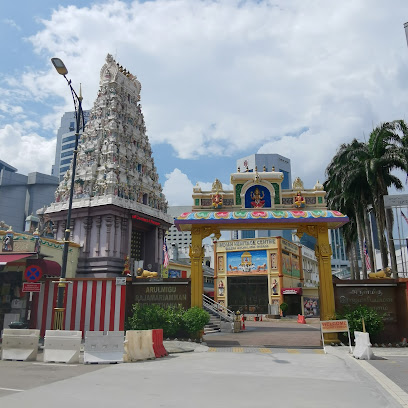
Skyscape Johor Bahru
Discover breathtaking views from the 34th floor of Menara JLand at Skyscape Johor Bahru, the ultimate observation deck for stunning cityscapes and memorable moments.
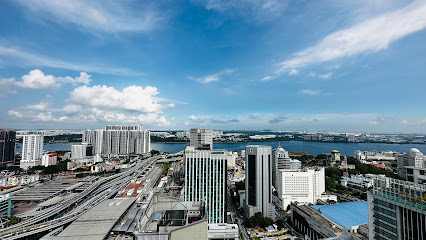
Cathedral of the Sacred Heart of Jesus, Johor Bahru
Explore the stunning Cathedral of the Sacred Heart of Jesus, a Gothic architectural gem in Johor Bahru that offers spiritual solace and cultural richness.
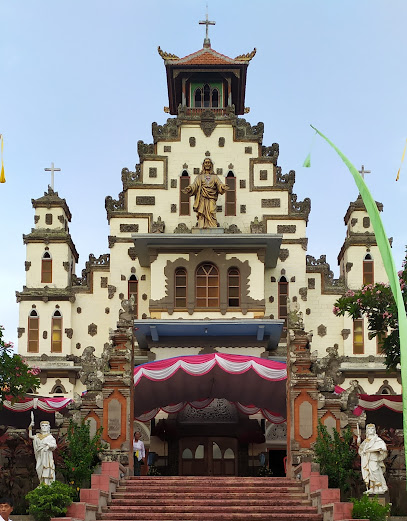
Unmissable attractions to see
Singapore Zoo
Discover the wonders of wildlife at the Singapore Zoo, a tropical paradise with open enclosures and interactive experiences for all ages.
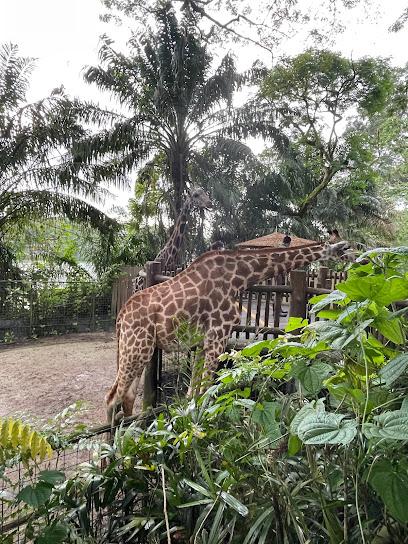
Night Safari
Discover the magic of the Night Safari in Singapore, a unique wildlife park showcasing nocturnal animals in their natural habitats under the stars.
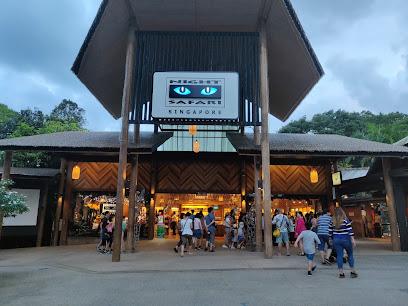
LEGOLAND Malaysia
Dive into a world of creativity and adventure at LEGOLAND Malaysia, where imagination comes to life through exhilarating rides and enchanting LEGO experiences.
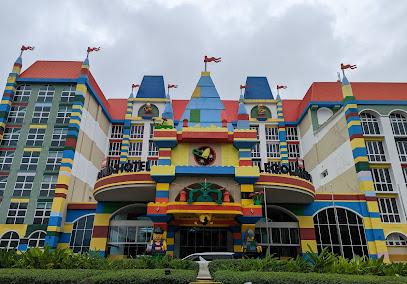
Singapore Discovery Centre
Explore Singapore's rich heritage and innovative future at the Singapore Discovery Centre, an engaging museum experience for all ages.
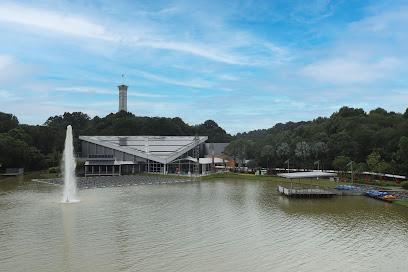
Johor Zoo
Explore Johor Zoo, a family-friendly attraction in Johor Bahru, home to diverse animal species and lush landscapes, perfect for a memorable day out.
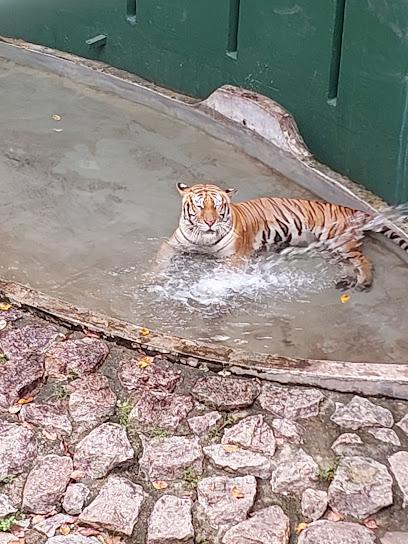
Bird Paradise
Discover a vibrant sanctuary of avian wonders at Bird Paradise, Singapore's premier wildlife park, perfect for families and nature lovers alike.
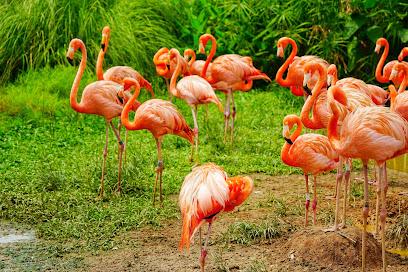
Taman Negara Johor Tanjung Piai
Discover the natural beauty and vibrant wildlife of Taman Negara Johor Tanjung Piai, a must-visit national park in Johor, Malaysia.
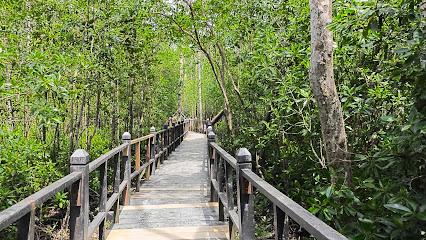
J2 Terrarium | J2 Studio & Workshop
Experience the joy of creating your own miniature garden at J2 Terrarium, Singapore's premier art studio for terrarium workshops and nature lovers.
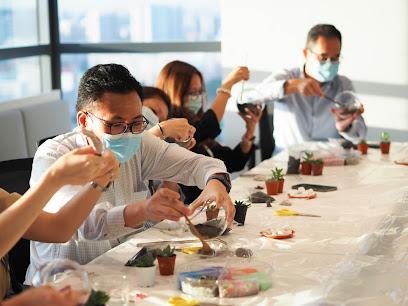
Desaru Fruit Farm
Discover the wonders of Desaru Fruit Farm, a tropical paradise in Johor, where adventure, nature, and delicious fruits await every visitor.

Taman Merdeka, Johor Bahru
Discover the tranquility and beauty of Taman Merdeka in Johor Bahru, a perfect urban park for relaxation and recreation amidst lush greenery.
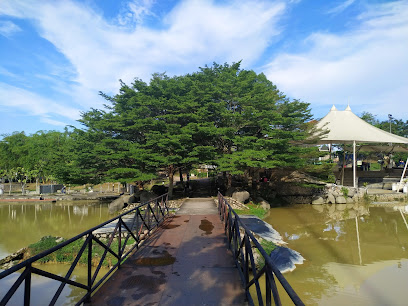
Kota Tinggi Firefly Park
Discover the enchanting glow of fireflies at Kota Tinggi Firefly Park, a magical nature retreat in Johor, Malaysia, ideal for all nature enthusiasts.
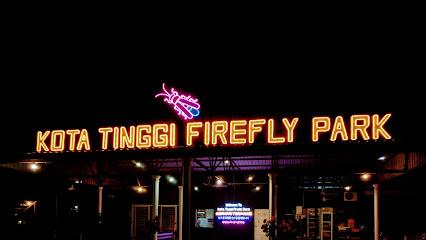
Austin Heights Water & Adventure Park
Experience the excitement and adventure at Austin Heights Water & Adventure Park, Johor Bahru's premier water park destination for families and thrill-seekers.
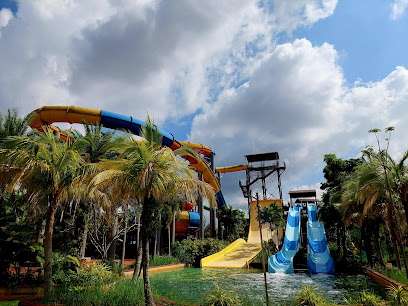
Sultan Abu Bakar Mosque
Discover the architectural beauty and cultural significance of Sultan Abu Bakar Mosque, an iconic landmark in Johor Bahru, Malaysia.
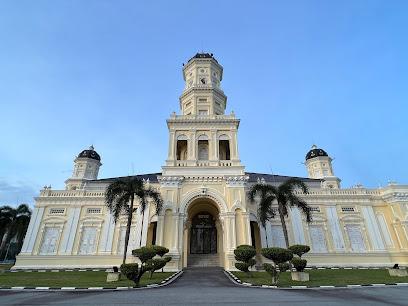
Johor Ancient Temple
Explore the Johor Ancient Temple, a serene Taoist temple in Johor Bahru, rich in history and cultural significance, perfect for spiritual reflection.
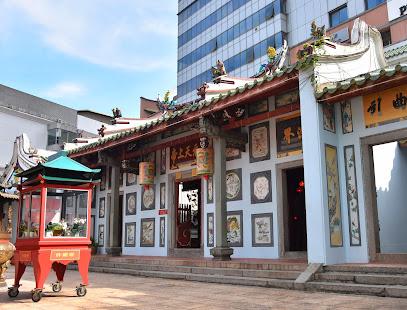
Tiger Brewery Tour
Explore the rich brewing history and taste the iconic Tiger Beer at Singapore's renowned Tiger Brewery Tour in Tuas, a must-visit for beer lovers.
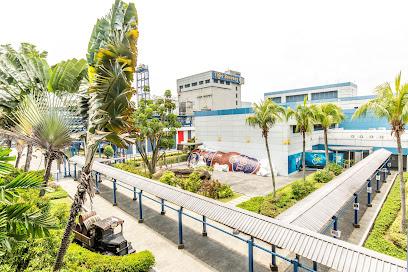
Essential places to dine
Restoran Woon Kiang
Experience authentic Chinese cuisine at Restoran Woon Kiang in Johor Bahru - home of the famous Johor kuey teow kia.
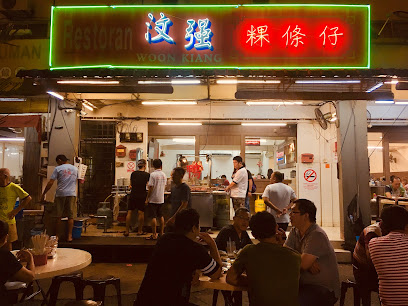
Restoran Hua Mui JB
Experience authentic Malaysian flavors at Restoran Hua Mui JB, where every meal tells a story in the heart of Johor Bahru.
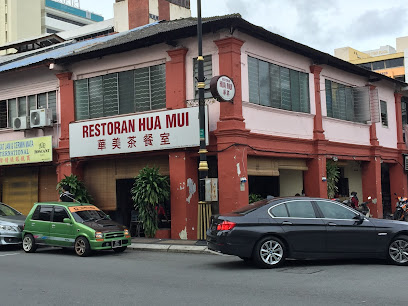
The Marco Polo Kitchen
Discover the fusion of Italian and Asian cuisine at The Marco Polo Kitchen in Johor Bahru - where every meal tells a delicious story.
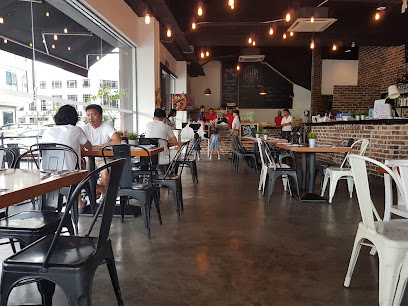
7 Spice
Experience authentic Indian cuisine at 7 Spice in Danga Bay, Johor Bahru – where rich flavors meet warm hospitality.
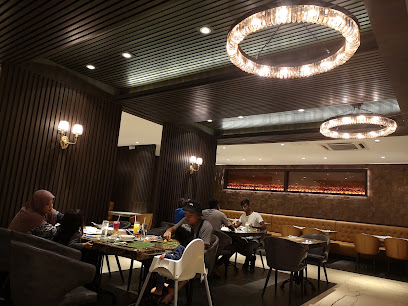
Dragon-i Peking Duck Restaurant @ Johor Bahru City Square
Experience authentic Chinese flavors at Dragon-i Peking Duck Restaurant in Johor Bahru—home to exquisite Peking Duck and more!
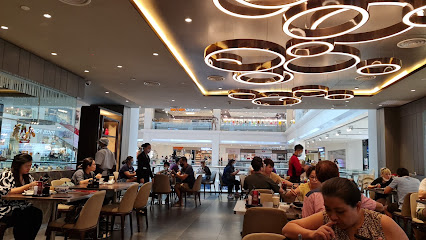
Kam Long Ah Zai Curry Fish Head
Discover the taste of Johor Bahru at Kam Long Ah Zai Curry Fish Head - where spicy meets savory in every bite.
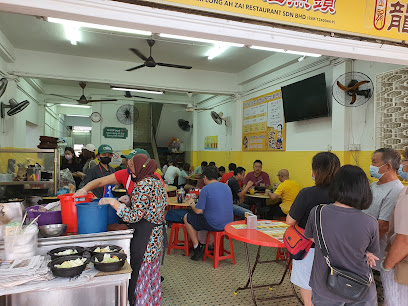
Ong Shun
Experience authentic Malaysian seafood at Ong Shun Seafood Restaurant in Johor Bahru - where every dish tells a story of flavor and tradition.
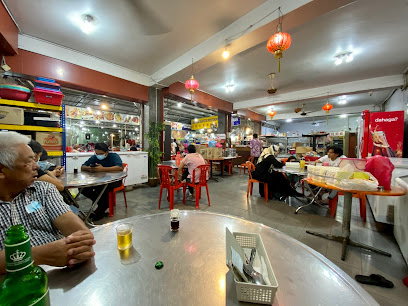
Warakuya Japanese Restaurant
Experience authentic Japanese cuisine at Warakuya in Johor Bahru - a culinary gem offering sushi, ramen, teppanyaki & more!
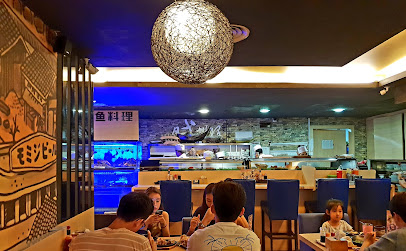
Awagyu Restaurant
Experience unparalleled luxury at Awagyu Restaurant in Johor Bahru—home to exquisite Japanese cuisine and world-class Wagyu beef.
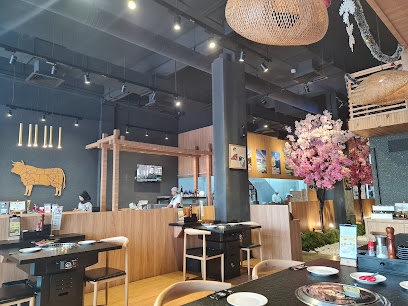
Kayuapi by Naughty Bali
Experience authentic Balinese flavors at Kayuapi by Naughty Bali in Johor Bahru, where Asian fusion meets exquisite dining.
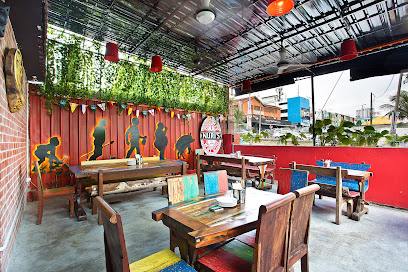
Restoran Ya Wang
Experience authentic Chinese cuisine at Restoran Ya Wang in Johor Bahru – where flavor meets tradition in an inviting atmosphere.
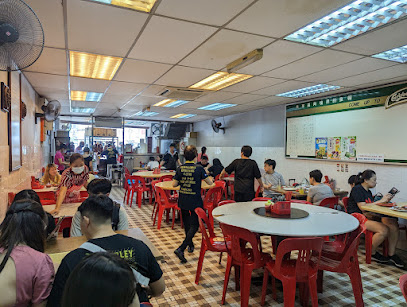
The Spice Kitchen
Savor the essence of Indian, Hakka & Thai cuisines at The Spice Kitchen in Johor Bahru – a must-visit dining experience.
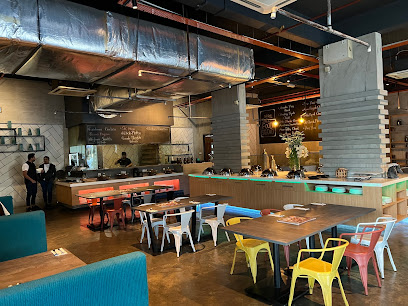
Principle Cafe by T.A.M Jalan Trus
Discover delicious Western cuisine at Principle Cafe in Johor Bahru – perfect for tourists seeking culinary delights.
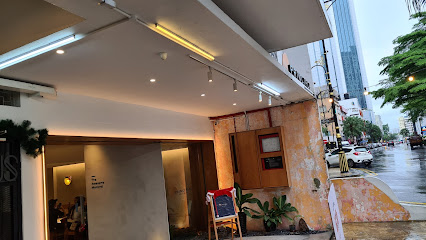
Kampung Carabao Thai Restaurant
Experience authentic Thai flavors at Kampung Carabao Restaurant in Johor Bahru – where every dish tells a story.
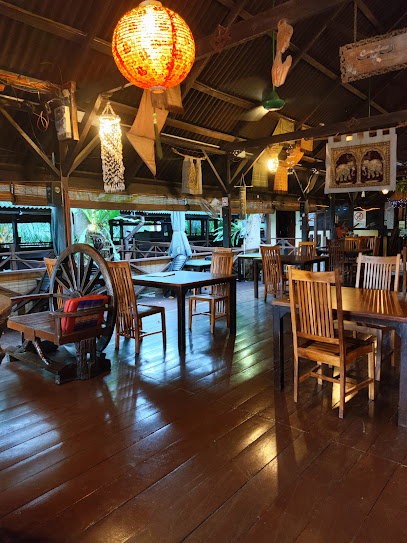
WW Laksa House 水塘。辣沙
Discover authentic Malaysian cuisine at WW Laksa House in Johor Bahru - home of delicious laksa dishes and more!
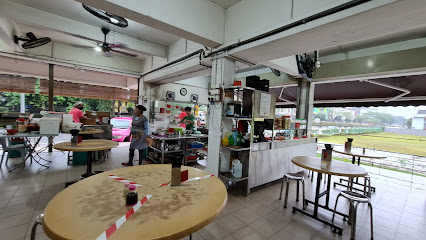
Markets, malls and hidden boutiques
KSL City Mall
Discover the ultimate shopping experience at KSL City Mall, Johor Bahru, with diverse retail shops and tantalizing dining options.
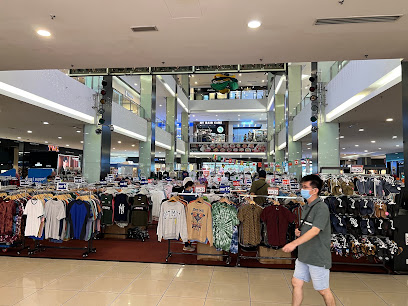
Johor Bahru City Square
Discover the vibrant shopping experience at Johor Bahru City Square, where retail, dining, and entertainment come together in the heart of Johor Bahru.
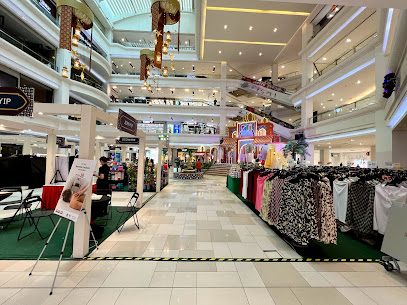
AEON Mall Bukit Indah
Discover the vibrant shopping, dining, and entertainment experiences at AEON Mall Bukit Indah, a top destination in Johor Bahru.
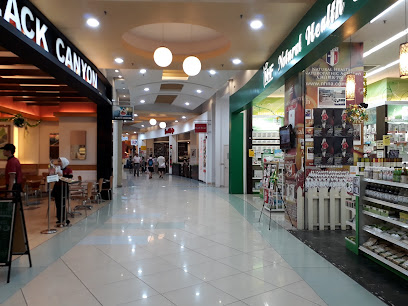
KOMTAR JBCC
Discover the best shopping, dining, and entertainment at KOMTAR JBCC, Johor Bahru's premier shopping mall.
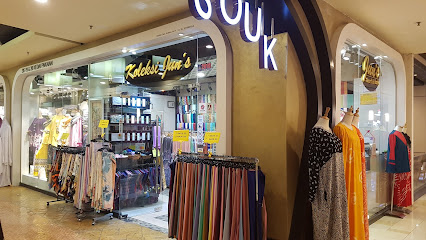
Plaza Pelangi
Discover the ultimate shopping and dining experience at Plaza Pelangi, Johor Bahru's vibrant shopping destination.
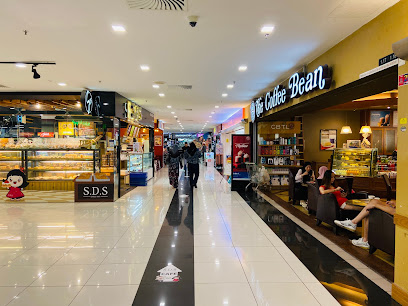
R&F Mall
Explore R&F Mall in Johor Bahru for an exciting blend of shopping and dining experiences, perfect for every traveler.
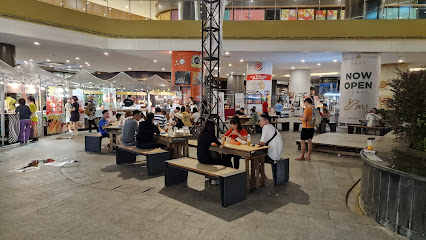
The Store
Experience local shopping at The Store in Johor Bahru, where diverse products meet a vibrant atmosphere, perfect for every traveler.
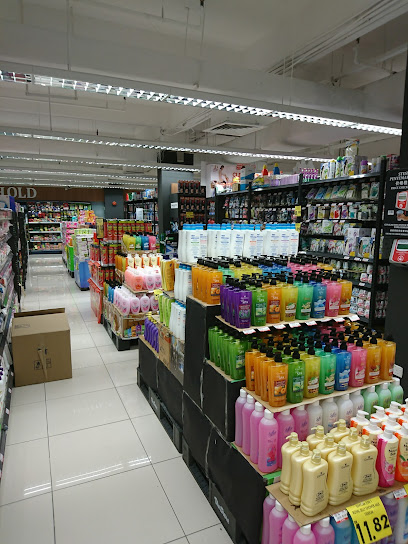
Zenith Lifestyle Centre
Experience the best of shopping, dining, and entertainment at Zenith Lifestyle Centre in Johor Bahru – a must-visit destination for every traveler.
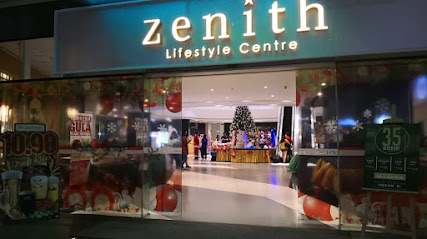
Nancy Fancy Gift Shop
Explore Nancy Fancy Gift Shop in Johor Bahru for unique gifts, stunning flowers, and exceptional event planning services that celebrate every occasion.
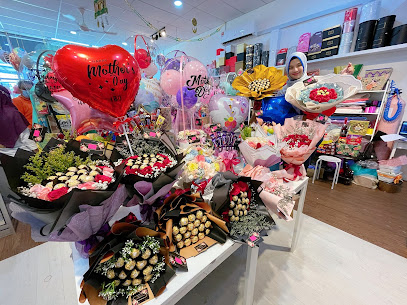
Romantika Paradigm Mall Johor Bahru
Explore the charm of Romantika Paradigm Mall Johor Bahru, where unique gifts and local culture blend beautifully.
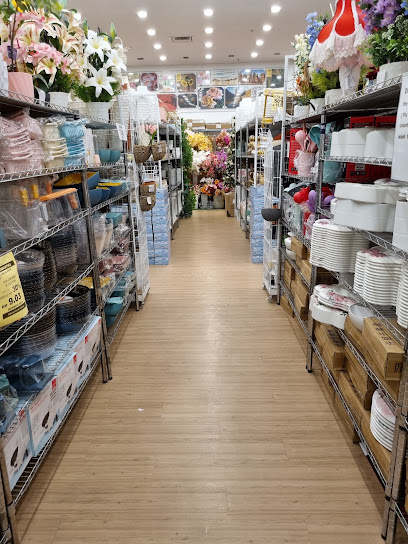
UNIQLO Johor Bahru City Square
Discover stylish and affordable fashion at UNIQLO Johor Bahru City Square, your ultimate shopping destination in Malaysia.

Redchilli vintage store
Explore the charm of bygone eras at Redchilli Vintage Store, where unique vintage clothing and accessories await in Johor Bahru.
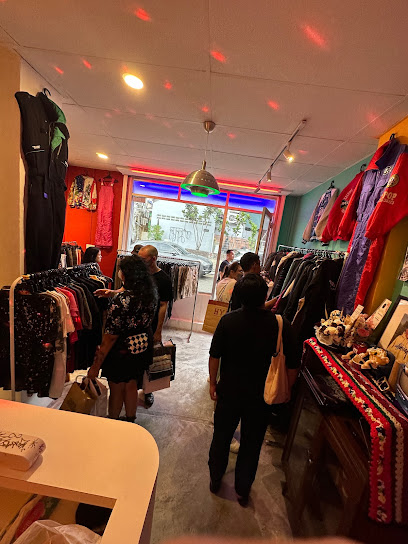
Prestige Souvenir
Discover unique Malaysian souvenirs and personalized trophies at Prestige Souvenir in Johor Bahru, the perfect place to find lasting memories.
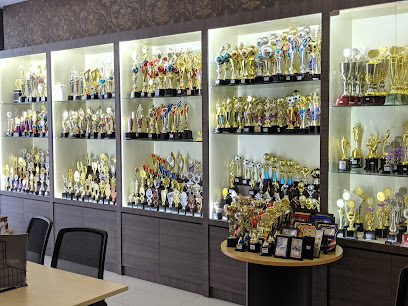
Butik Bokitta JB
Explore the vibrant fashion scene at Butik Bokitta JB, a stylish boutique in Johor Bahru offering unique apparel and personalized shopping experiences.
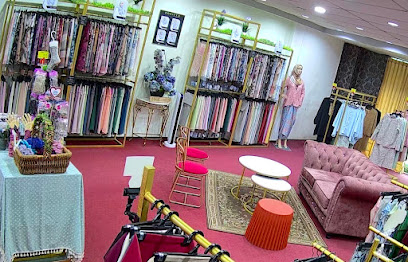
Imaan Boutique Johor Bahru
Explore Imaan Boutique Johor Bahru for unique women's clothing and designer fashion that enhances your personal style.
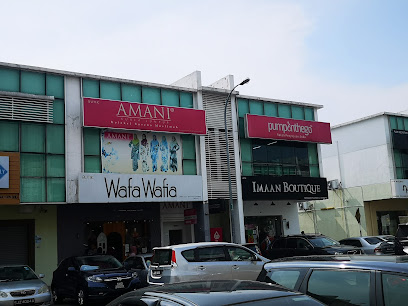
Essential bars & hidden hideouts
MacGregor's
Discover MacGregor's, a lively Irish pub in Johor Bahru, where great food, refreshing drinks, and live music create an unforgettable experience.
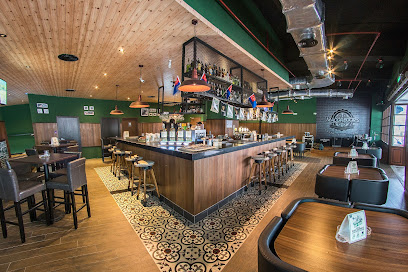
Whisky House Johor Bahru
Discover a premier whisky destination in Johor Bahru, offering an extensive selection of spirits, gourmet dining, and a vibrant atmosphere.
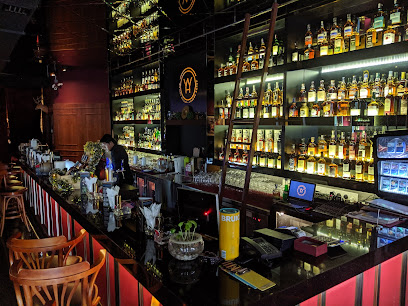
La Primeur Austin
Experience the vibrant nightlife of Johor Bahru at La Primeur Austin, a lively bar offering delicious drinks and a welcoming atmosphere.
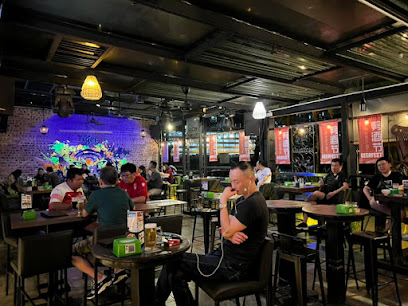
Haiiro Usagi
Experience the art of mixology at Haiiro Usagi, Johor Bahru's premier cocktail bar, where unique flavors and a vibrant atmosphere await.
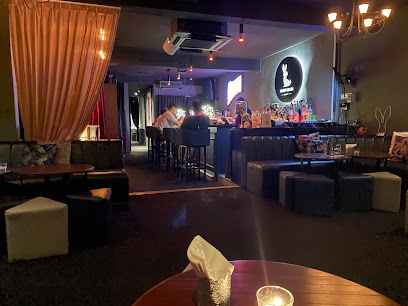
Flanagan’s Irish Restaurant
Discover the essence of Ireland with authentic cuisine, warm hospitality, and a vibrant atmosphere at Flanagan's Irish Restaurant in Johor Bahru.
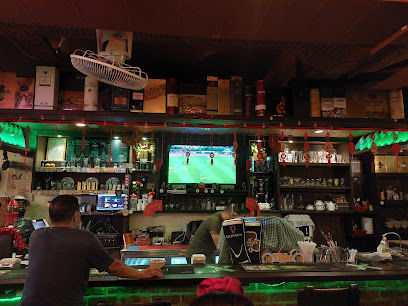
JJ wine & tapas
Discover a blend of exquisite wines and tantalizing tapas at JJ Wine & Tapas, a top bar destination in Johor Bahru's vibrant Taman Pelangi.
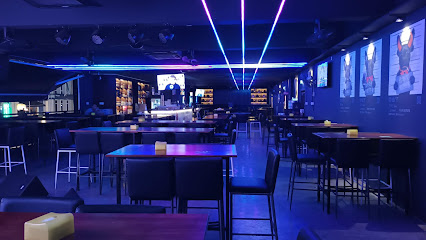
Mezzo bar & lounge
Experience the vibrant nightlife of Johor Bahru at Mezzo Bar & Lounge, where relaxation meets lively entertainment in a stylish setting.
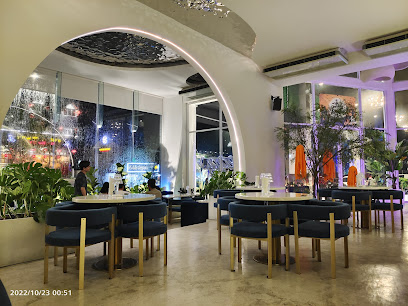
Bravo Bistro
Discover Bravo Bistro, a lively pub in Johor Bahru, offering a fusion of local flavors, extensive drinks, and vibrant entertainment for a memorable night out.
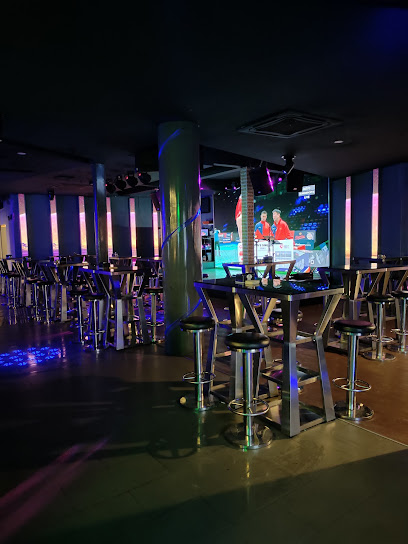
Shui 水
Discover vibrant nightlife at Shui 水 in Johor Bahru, where refreshing cocktails and a lively atmosphere await every visitor.
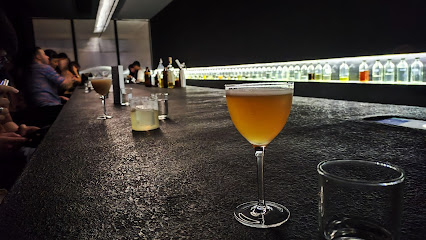
Century One Bistro
Experience the vibrant atmosphere of Century One Bistro, an Irish pub offering hearty meals and refreshing drinks in the heart of Johor Bahru.
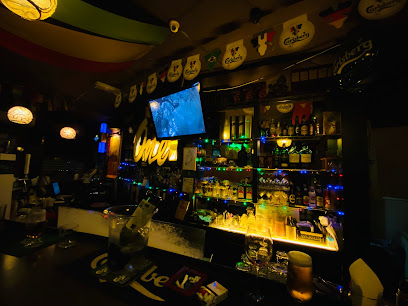
The View Bar & Lounge
Experience breathtaking views and a vibrant atmosphere at The View Bar & Lounge in Johor Bahru, a must-visit for any traveler.
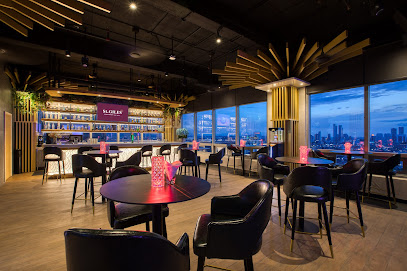
Chaos Natural Wine Bar
Discover the enchanting ambiance and exquisite selection of natural wines at Chaos Natural Wine Bar in Johor Bahru.
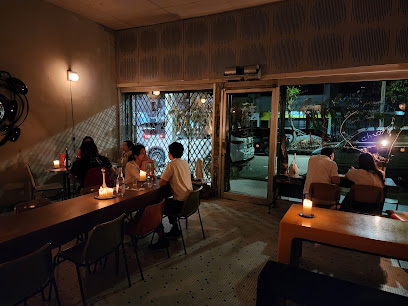
THE HEIGHT'S BISTRO
Experience the vibrant nightlife at The Height's Bistro in Johor Bahru, where delicious drinks and lively ambiance await every visitor.
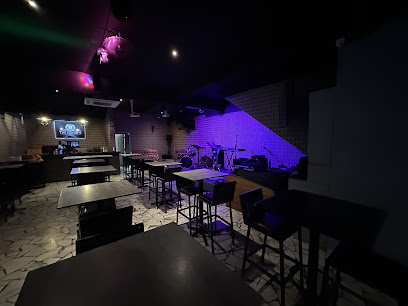
Country Bar
Enjoy the vibrant nightlife of Johor Bahru at Country Bar, where live music meets a fantastic drink selection in a lively atmosphere.
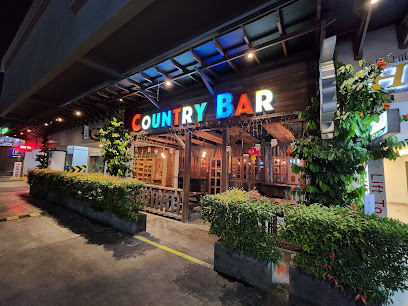
Local Phrases
-
- HelloSelamat sejahtera
[suh-lah-maht say-jah-teh-rah] - GoodbyeSelamat tinggal
[suh-lah-maht ting-gahl] - YesYa
[yah] - NoTidak
[tee-dahk] - Please/You're welcomeSila
[see-lah] - Thank youTerima kasih
[teh-ree-mah kah-see] - Excuse me/SorryMaaf
[mah-ahf] - How are you?Apa khabar?
[ah-pah kah-bahr] - Fine. And you?Baik. Dan awak?
[bah-ee. dahn ah-wahk] - Do you speak English?Boleh cakap Bahasa Inggeris?
[boh-leh chah-kahp bah-hah-sah eeng-geh-rees] - I don't understandSaya tidak faham
[sah-yah tee-dahk fah-hahm]
- HelloSelamat sejahtera
-
- I'd like to see the menu, pleaseSaya ingin lihat menu, sila
[sah-yah een-geen lee-haht meh-noo, see-lah] - I don't eat meatSaya tidak makan daging
[sah-yah tee-dahk mah-kahn dah-yehng] - Cheers!Sihat!
[see-haht] - I would like to pay, pleaseSaya ingin bayar, sila
[sah-yah een-geen bah-yahr, see-lah]
- I'd like to see the menu, pleaseSaya ingin lihat menu, sila
-
- Help!Tolong!
[toh-lohng] - Go away!Pergi jauh-jauh!
[pehr-ghee jah-oo-jah-oo] - Call the Police!Panggil Polis!
[pahng-geel poh-lees] - Call a doctor!Panggil doktor!
[pahng-geel dohk-tohr] - I'm lostSaya sesat
[sah-yah suh-saht] - I'm illSaya sakit
[sah-yah sah-keet]
- Help!Tolong!
-
- I'd like to buy...Saya ingin membeli...
[sah-yah een-geen mehm-buh-lee] - I'm just lookingSaya hanya tengok-tengok
[sah-yah hahn-yah tehn-gohk-tehn-gohk] - How much is it?Berapa harganya?
[beh-rah-pah hahr-gahn-yah] - That's too expensiveItu terlalu mahal
[ee-too teh-rah-lah mah-hahl] - Can you lower the price?Boleh kurangkan harga?
[boh-leh koo-rahn-gahn hahr-gah]
- I'd like to buy...Saya ingin membeli...
-
- What time is it?Berapa pukul sekarang?
[beh-rah-pah poo-kool suh-kah-rahng] - It's one o'clockPukul satu
[poo-kool sah-too] - Half past (10)Pukul setengah (sepuluh)
[poo-kool suh-tehn-gah (suh-poo-loo)] - MorningPagi
[pah-gee] - AfternoonPetang
[puh-tahng] - EveningMalam
[mah-lahm] - YesterdaySemalam
[suh-mah-lahm] - TodayHari ini
[hah-ree ee-nee] - TomorrowEsok
[eh-sohk] - 1Satu
[sah-too] - 2Dua
[doo-ah] - 3Tiga
[tee-gah] - 4Empat
[em-paht] - 5Lima
[lee-mah] - 6Enam
[eh-nahm] - 7Tujuh
[too-joo] - 8Lapan
[lah-pahn] - 9Sembilan
[suhm-bee-lahn] - 10Sepuluh
[suh-poo-loo]
- What time is it?Berapa pukul sekarang?
-
- Where's a/the...?Di mana...
[dee mah-nah...] - What's the address?Apa alamatnya?
[ah-pah ah-lah-maht-nyah] - Can you show me (on the map)?Boleh tunjukkan saya (di peta)?
[boh-leh toon-jook-kahn sah-yah (dee peh-tah)] - When's the next (bus)?Bila bas seterusnya?
[bee-lah bahs suh-tuh-roos-nyah] - A ticket (to ....)Sebuah tiket (ke ....)
[suh-boo-ah tee-keht (keh ....)]
- Where's a/the...?Di mana...
History of Johor Bahru
-
Johor Bahru, originally known as Tanjung Puteri, was founded in 1855 by Temenggong Daeng Ibrahim, the father of Sultan Abu Bakar. It was established as a strategic administrative center for the Johor Sultanate. The city was later renamed Johor Bahru, meaning 'New Johor,' as it became the new capital following the fall of the old Johor capital, Telok Blangah, to British forces.
-
Sultan Abu Bakar, who ruled from 1862 to 1895, is often referred to as the 'Father of Modern Johor.' He implemented major administrative reforms and modernized the state by introducing Western concepts of governance, education, and infrastructure. Under his reign, Johor Bahru saw the construction of significant landmarks such as the Istana Besar (Grand Palace) and the Sultan Abu Bakar State Mosque.
-
In the late 19th and early 20th centuries, Johor Bahru came under increasing British influence. Treaties and agreements, such as the 1885 Treaty of Friendship and Alliance, ensured British advisors were involved in the administration. This period saw the development of rubber and gambier plantations, contributing to Johor's economic growth.
-
During World War II, Johor Bahru played a pivotal role as the Japanese launched their invasion of Singapore from the city in February 1942. The British had established a defense line at the Johor-Singapore Causeway, but it was quickly overrun. Johor Bahru was occupied by Japanese forces until the end of the war in 1945, during which time it suffered significant hardships and destruction.
-
After Malaysia gained independence in 1957, Johor Bahru rapidly developed as a major urban center. The construction of infrastructure, such as the Johor-Singapore Causeway and the Malaysia-Singapore Second Link, facilitated cross-border trade and travel. Today, Johor Bahru is a bustling metropolis and a key economic hub in Malaysia, known for its vibrant culture and rich history.
-
Johor Bahru's cultural landscape is a melting pot of Malay, Chinese, Indian, and indigenous influences. The annual Chingay Parade, a traditional Chinese celebration, and the Johor Bahru Arts Festival are among the city's key cultural events. Historic sites like the Arulmigu Sri Rajakaliamman Glass Temple and the Johor Bahru Old Chinese Temple showcase the city's diverse religious and cultural heritage.
-
In recent years, Johor Bahru has seen a surge in modern developments, including shopping malls like Johor Bahru City Square and theme parks such as Legoland Malaysia. The city is also home to the Iskandar Malaysia development corridor, aimed at transforming Johor Bahru into an international metropolis with world-class facilities and infrastructure.
Johor Bahru Essentials
-
Johor Bahru is accessible via several means of transportation. The nearest international airport is Senai International Airport, located approximately 30 kilometers from the city center. You can take a taxi or a bus from the airport to reach Johor Bahru. Additionally, Johor Bahru is well-connected by road and rail. If you are traveling from Singapore, you can use the Causeway or the Second Link bridge. There are also regular bus and train services between Johor Bahru and major Malaysian cities like Kuala Lumpur.
-
Getting around Johor Bahru is convenient with several transportation options available. You can use public buses, which are operated by several companies and cover most parts of the city. Taxis and ride-hailing services like Grab are also readily available. For a more local experience, you can try using trishaws for short distances. Renting a car is another option, especially if you plan to explore the surrounding areas.
-
The official currency in Malaysia is the Malaysian Ringgit (MYR). Credit and debit cards are widely accepted in hotels, restaurants, and shopping centers. However, it's advisable to carry some cash for small purchases or in places where card payments are not accepted. ATMs are plentiful in Johor Bahru, and you can withdraw cash using international cards. Currency exchange services are also available at banks, hotels, and dedicated exchange centers.
-
Johor Bahru is generally safe for tourists, but it's essential to exercise standard precautions. Be cautious in areas like the city center and the CIQ Complex, where pickpocketing can occur. Avoid walking alone at night in poorly lit areas. Always keep an eye on your belongings, especially in crowded places like markets and public transportation hubs. While violent crime is rare, it's always best to stay vigilant and aware of your surroundings.
-
In case of emergency, dial 999 for immediate assistance. This number connects you to police, fire, and medical emergency services. Hospitals and clinics are available throughout the city for medical emergencies. It is advisable to have travel insurance that covers medical emergencies. Pharmacies are also widely available for minor health issues. The local police station is located at Jalan Meldrum, and they can assist you in case of any legal or safety concerns.
-
Fashion: Do dress modestly, especially when visiting religious sites. Avoid wearing overly revealing clothing. Religion: Do respect local customs and traditions. Remove your shoes before entering mosques and temples. Public Transport: Do be respectful and give up your seat to elderly passengers. Don't eat or drink on public transport. Greetings: Do greet people with a smile and a slight bow. A handshake is also common, but be mindful that some may prefer not to touch. Eating & Drinking: Do try local delicacies and accept food offerings graciously. Don't refuse hospitality, as it is considered impolite.
-
To experience Johor Bahru like a local, visit the local markets such as Pasar Karat, where you can find unique souvenirs and street food. Engage with locals, as they are often friendly and willing to share stories about the city's history and culture. Don't miss visiting attractions like the Sultan Abu Bakar State Mosque and the Johor Bahru Chinese Heritage Museum. For a unique experience, take a walk along the Johor Bahru City Square and enjoy the vibrant nightlife.
Trending Landmark in Johor Bahru
-
Pasar Karat (Bazar JB)
-
Johor Zoo
-
Taman Merdeka, Johor Bahru
-
Johor Bahru City Council City Forest
-
Sultan Abu Bakar Mosque
-
Johor Ancient Temple
-
Arulmigu Sri Rajakaliamman Glass Temple
-
Angry Birds Activity Park, Komtar, Johore.
-
Church Of The Immaculate Conception
-
Johor Bahru Chinese Heritage Museum
-
Dataran Mahkota
-
Bukit Serene Palace
-
Arulmigu Rajamariamman Devasthanam அருள்மிகு ராஜமாரியம்மன் தேவஸ்தானம்
-
Skyscape Johor Bahru
-
Cathedral of the Sacred Heart of Jesus, Johor Bahru
Nearby Cities to Johor Bahru
-
Things To Do in Sembawang
-
Things To Do in Yishun
-
Things To Do in Singapore
-
Things To Do in Bukit Timah
-
Things To Do in Jurong
-
Things To Do in Orchard Road
-
Things To Do in Little India
-
Things To Do in Bugis
-
Things To Do in Clarke Quay
-
Things To Do in Chinatown
-
Things To Do in Marina Bay
-
Things To Do in East Coast Park
-
Things To Do in Tampines
-
Things To Do in Sentosa
-
Things To Do in Malacca

















